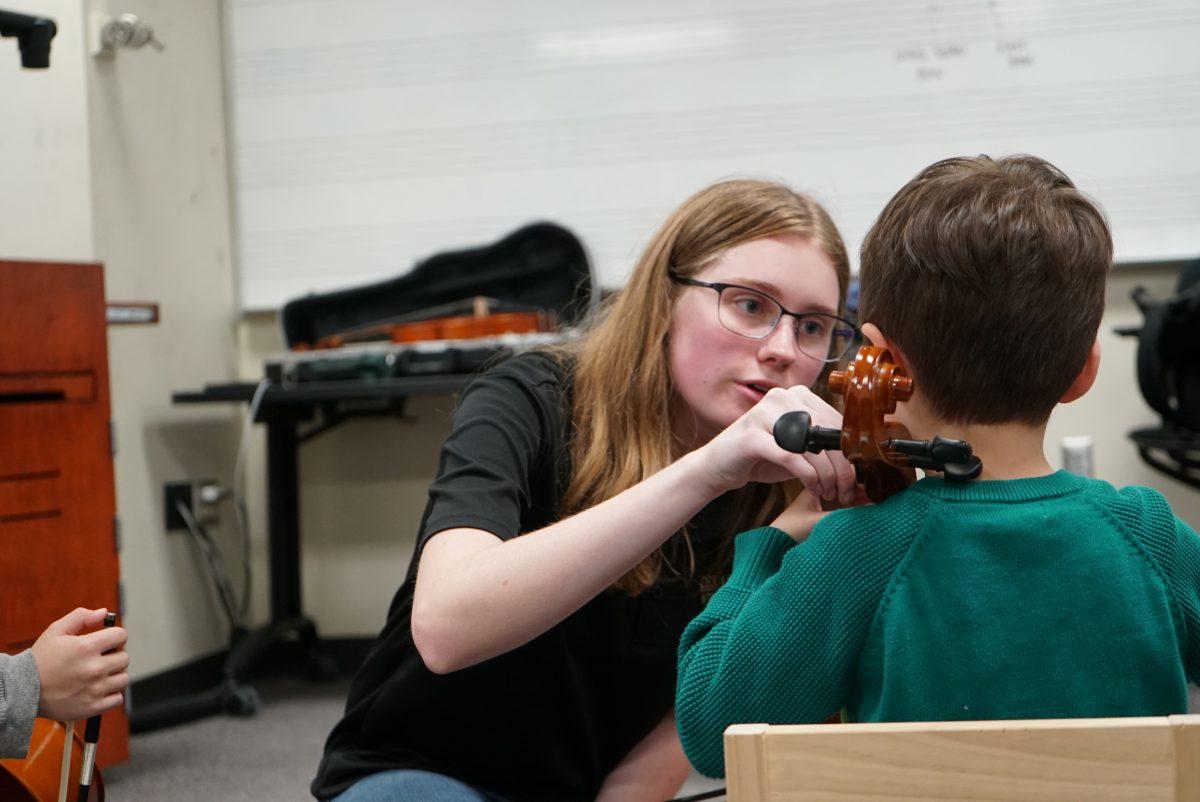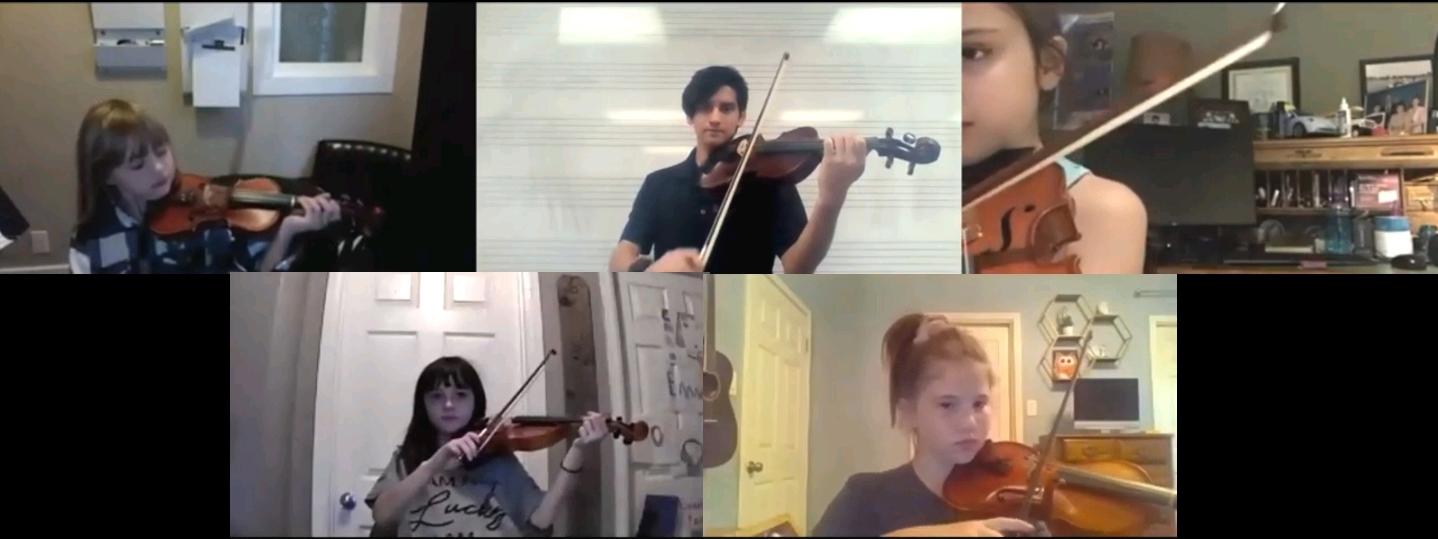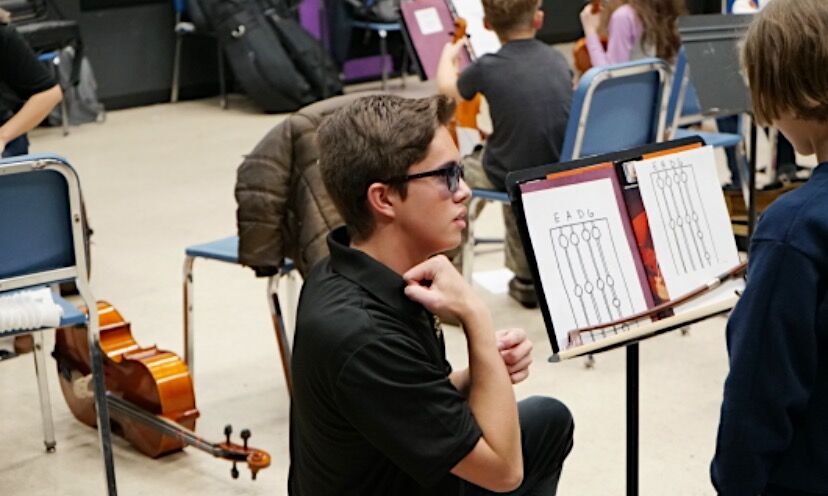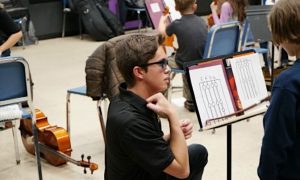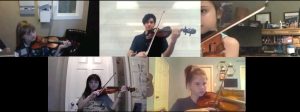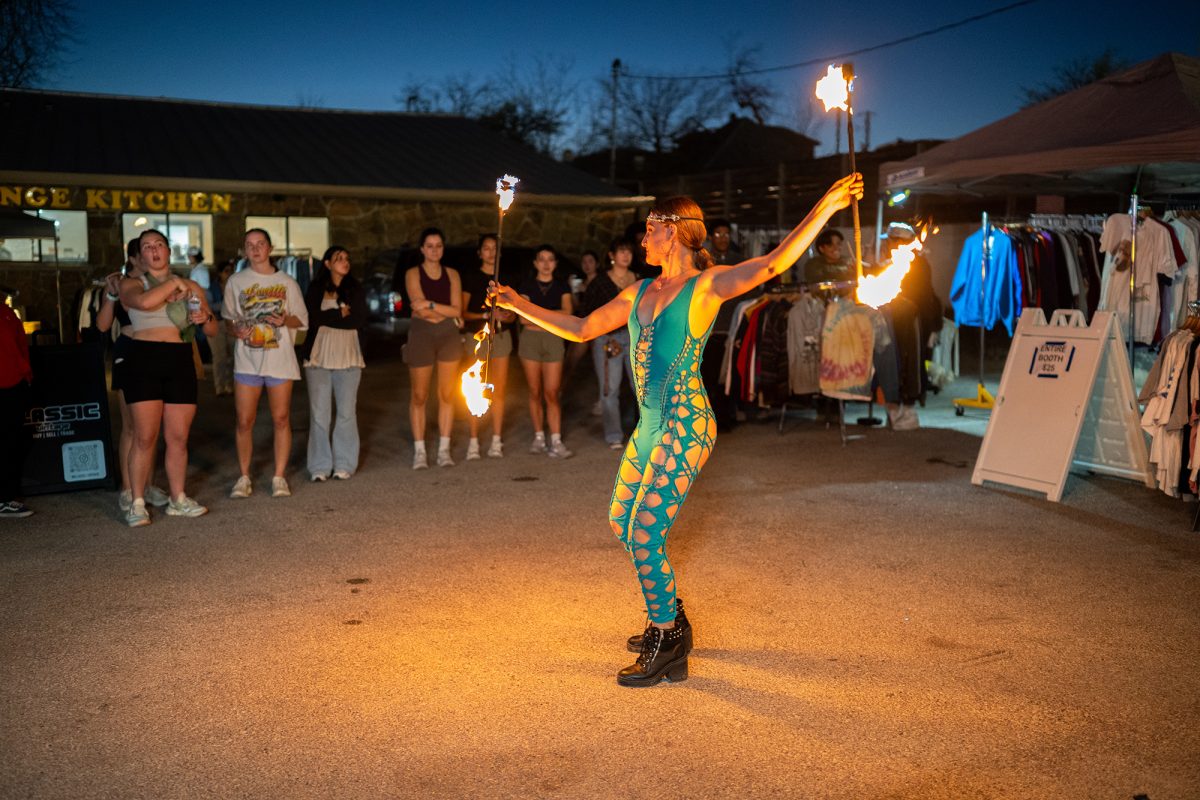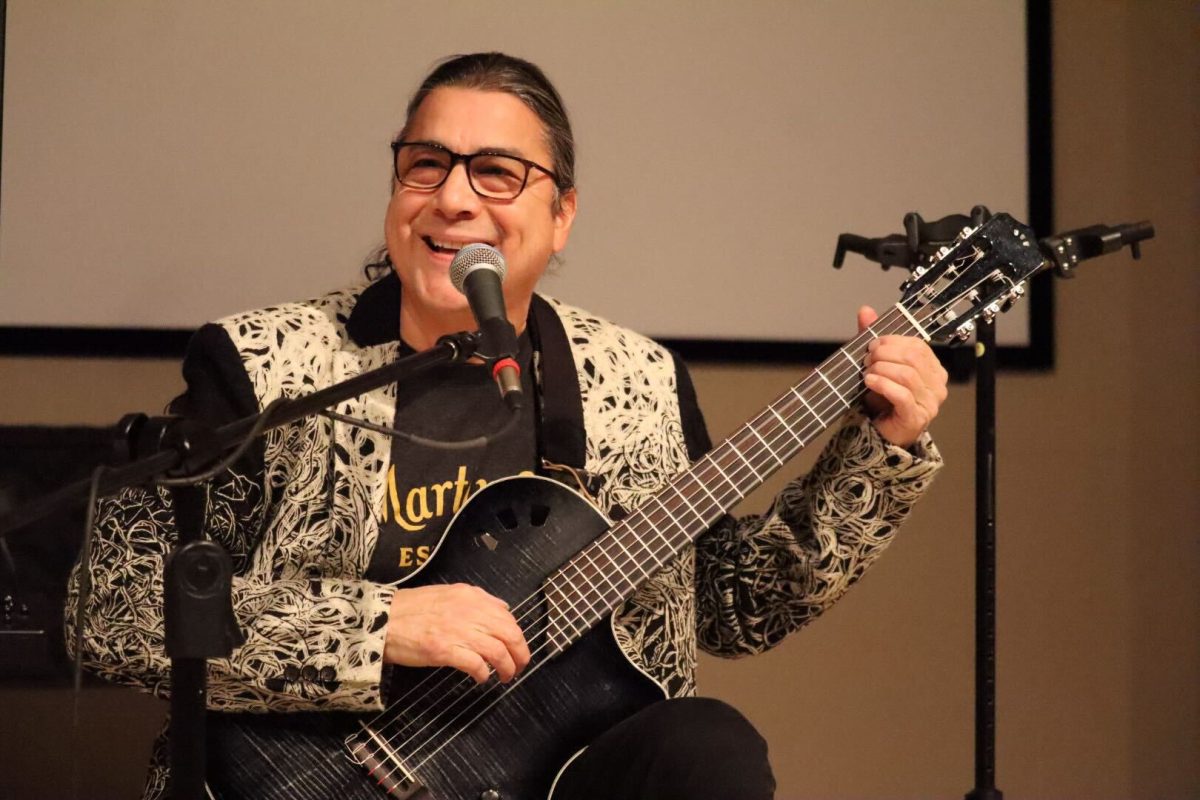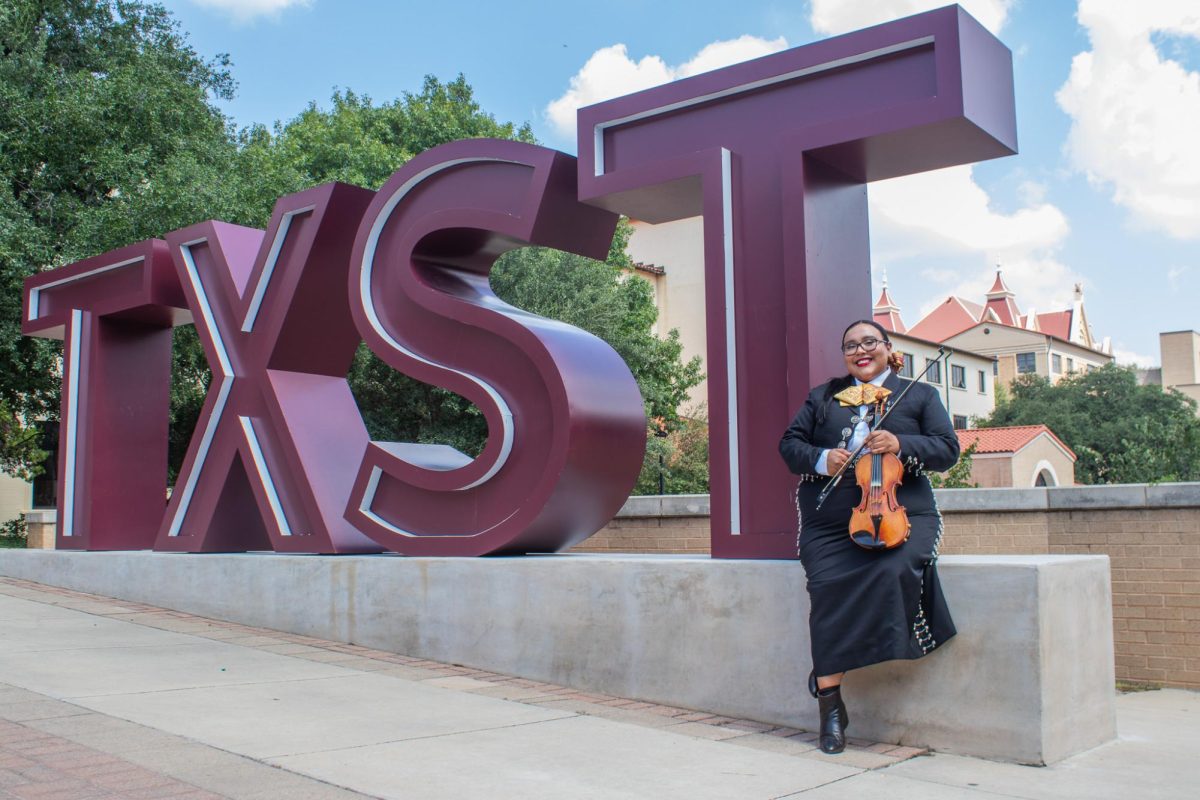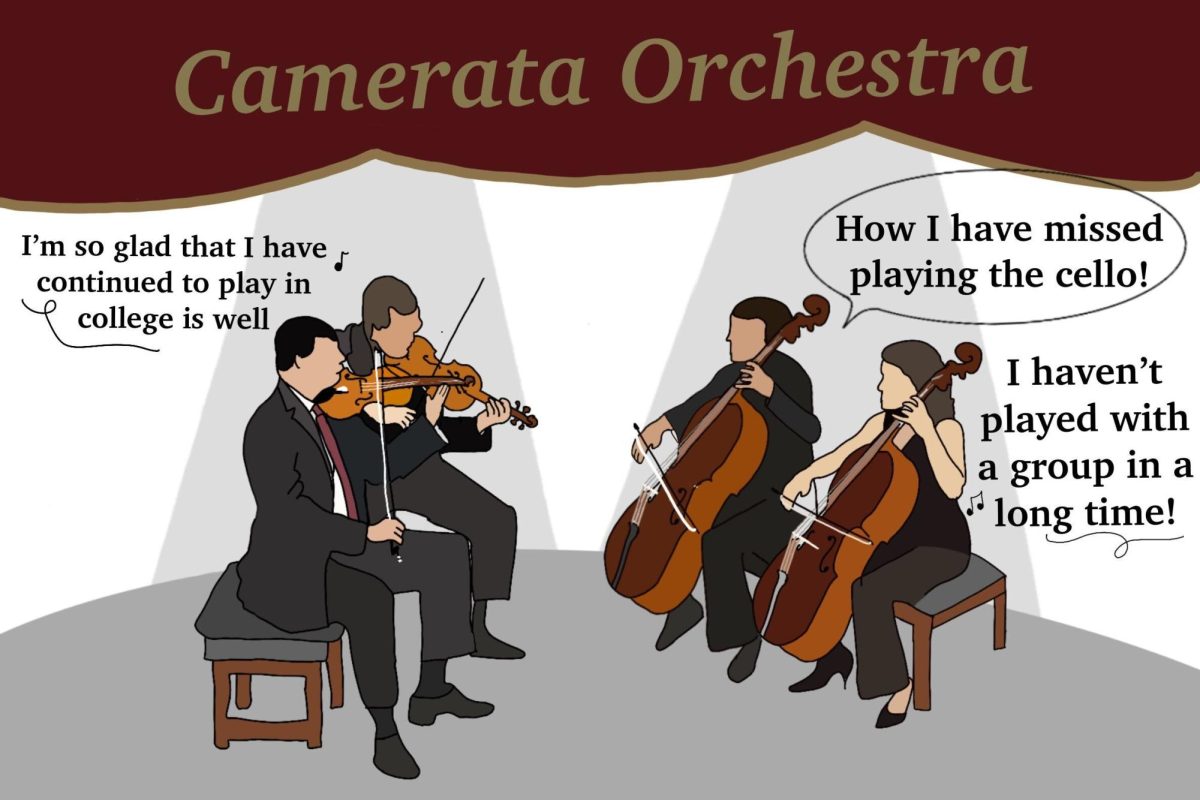Prior to working for the Texas State String Project in 2019, Rachel Watson underestimated how much joy and solace she would find watching kids she taught improve over time.
“When I reflect on where they started, I have a lot of pride in how far they’ve come as musicians, and I love watching them feel accomplished,” said Watson, a sophomore music studies major.
Founded by associate professor of viola Ames Asbell, the String Project was created to provide Texas State music majors with hands-on teaching experience and make string instrument lessons more accessible to the children of San Marcos.
“It’s an excellent way for us to train our future teachers and get them excited about their future careers,” Rebecca Tast, an assistant professor of music education, said.
The program gives performance and music education majors the opportunity to provide low-cost group and private string lessons to San Marcos children 5 to 14 years old.
Tast, who took over as director of the String Project last year, says the hands-on experience the project provides future music teachers is essential to the development of their individuality and confidence.
Most music students involved in the String Project end up teaching orchestra in public schools, while others host private and small group classes on their own.
In fact, when Watson first decided to join the String Project, she was unsure if she wanted to pursue a career in music or string education; however, after witnessing the difference she was making in students’ lives, she realized where her true passion resided.
“I have really enjoyed teaching the cello to young students, and it’s made me want to continue past college,” Watson said. “As I figure out what I want my future to look like, I’m happy to say that the String Project has helped me learn that I have a true passion for teaching private students and that it’s something that I can see myself doing for years to come.”
Apart from developing future teachers, Tast says one of the most rewarding aspects of the program is the impact it has on the community.
“In San Marcos and many of the surrounding communities, we have seen an outgrowth of orchestra programs in the public schools in the last 10 years,” Tast said.
The String Project’s success over the years helped pave the way for more string programs in public schools, an aspect of public education that often gets overlooked.
Dripping Springs, one of the communities the String Project also caters to, started its first public school orchestra in 2019, while Hays ISD launched its first orchestra program last year.
With accessibility and involvement at the root, Tast says a big part of the project’s mission includes showing support for the development of new string programs in the community. Students are pushed to choose school orchestra programs over the String Project.
Watson believes an important part of teaching is re-learning fundamentals previously forgotten to help develop confident, well-prepared and versatile teachers.
“It’s interesting to hear new methods of teaching skills that benefit not only your students’ understanding but your own as well,” Watson said.
Jamie Mager, a viola performance graduate student and the program’s graduate assistant, agrees that learning to be versatile is essential when teaching children.
“One thing I have learned by being involved with the String Project is how different each student is and how important it is to be able to adapt to what each student needs to be successful,” Mager said.
Experience with adaptation was essential for Mager and the rest of the student teachers when their weekly group and in-person lessons went virtual due to the pandemic. Although the String Project did not suffer a great loss, students and teachers alike had to adapt to new challenges presented by online classes.
“We can’t play in ensembles or quartets as we normally would because that doesn’t work through Zoom,” Watson said. “I’ve found myself struggling to think of activities that suit the mode of communication we have to use now while also keeping younger students engaged and excited to play music.”
Angel Raygoza, a music studies senior, says one of the most valuable and indispensable lessons he learned through the String Project was the value of self-confidence.
“[When I first started], I would look at my colleagues and believe that I could not possibly measure up to them in personality, musicianship or professionalism,” Raygoza said. “Eventually, as I taught more and more classes, I became more confident in my own skills, as I realized that I do not have to be the absolute best in my field but rather the best ‘me’ I could be for my students.”
As graduation peaks around the corner for student teachers like Raygoza, he cherishes the opportunities and guidance the program has provided him.
“I have learned that I really enjoy starting off aspiring musicians, and so I plan to teach orchestra in middle school where most students pick up a string instrument for the very first time,” Raygoza said.
For more information about the Texas State String Project, visit its website.
Categories:
Texas State String Project fosters future music educators
Tania Zapien, Life and Arts Contributor
January 11, 2021
Music major Rachel Watson works with a beginning cello student on instrument position and bow hold in 2019.
0
Donate to The University Star
Your donation will support the student journalists of Texas State University. Your contribution will allow us to purchase equipment and cover our annual website hosting costs.
More to Discover



